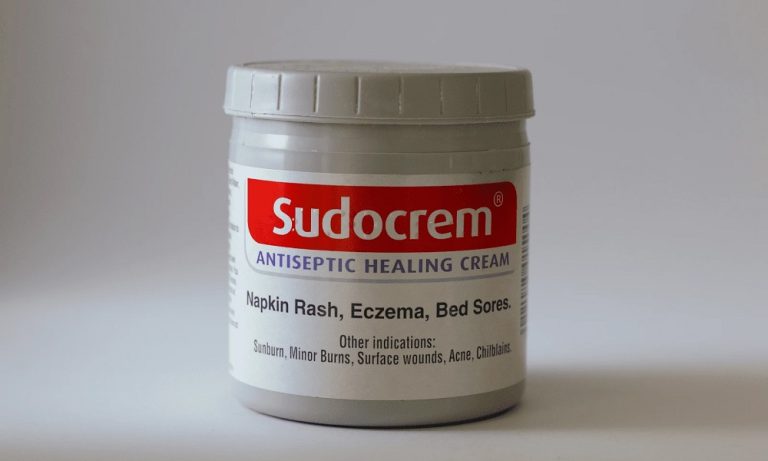Can Dogs Eat Chaga Mushrooms?
Dogs can eat Chaga mushrooms with no problem, although it is important to ensure that the mushrooms are cooked before serving. Chaga mushrooms contain a high amount of antioxidants, which help boost your dog’s immunity and protect them from disease.
They also provide essential vitamins and minerals that are beneficial for overall health. As always, consult your vet before giving any new food to your pup!
What are the Health Benefits of Chaga Mushrooms for Dogs?
Chaga mushrooms (Inonotus obliquus) have gained popularity in recent years as a potential superfood for humans, and some people have started using them for their pets as well. However, it’s important to note that while some believe chaga mushrooms have health benefits, there is limited scientific research on their specific effects on dogs.
Here are some potential health benefits associated with chaga mushrooms, but keep in mind that these claims are largely anecdotal, and you should consult your veterinarian before introducing any new supplements or foods into your dog’s diet:
-
Immune System Support: Chaga mushrooms are rich in antioxidants, particularly polysaccharides and beta-glucans. These compounds may help support the immune system by neutralizing harmful free radicals. A healthy immune system is important for overall well-being.
-
Anti-Inflammatory Properties: Chaga mushrooms are believed to have anti-inflammatory properties, which could be beneficial for dogs with conditions involving inflammation, such as arthritis or allergies. However, more research is needed to confirm these effects in dogs.
-
Potential Anti-Cancer Properties: Some studies in humans and lab animals suggest that chaga mushrooms may have anti-cancer properties due to their antioxidant and immune-boosting effects. However, it’s important to note that cancer treatment in dogs should be discussed with a veterinarian, and chaga mushrooms should not be used as a sole treatment.
-
Digestive Health: Chaga mushrooms may have prebiotic properties, which means they could support healthy gut bacteria in dogs. A balanced gut microbiome is important for digestion and overall health.
-
Improved Skin and Coat: Some pet owners believe that chaga mushrooms can help improve their dog’s skin and coat health. The antioxidants in chaga may contribute to a shinier coat and healthier skin.
-
Energy and Vitality: Some people claim that chaga mushrooms can increase energy levels and overall vitality in dogs, but this is largely anecdotal and not well-supported by scientific evidence.
Before giving your dog chaga mushrooms or any other supplement, it’s crucial to consult with your veterinarian. They can provide guidance based on your dog’s specific health needs, as well as any potential interactions with other medications or health conditions your dog may have.
Keep in mind that while chaga mushrooms may have potential benefits, more research is needed to fully understand their effects on dogs, and their safety and efficacy in pets have not been well-established.
Which Mushrooms are Good for Dogs?
Mushrooms are one of the most nutritious and versatile foods available, and they can also be beneficial for our canine companions. There are several types of mushrooms that are safe for dogs to eat, including shiitake, oyster, maitake and enoki mushrooms.
These mushrooms provide important vitamins and minerals such as vitamin B12, selenium, potassium and copper. They also contain antioxidants which can help protect against cell damage caused by free radicals in the body. In addition to their nutritional benefits, these mushrooms have anti-inflammatory properties that may help reduce joint pain or other health issues related to aging in dogs.
Furthermore, some studies suggest that certain compounds in certain types of mushrooms may even have cancer-fighting properties! All of these factors make them an excellent choice when looking for healthy treats or additions to your pup’s diet.
Do Animals Eat Chaga Mushrooms?
Animals eat a variety of things, and chaga mushrooms are no exception. Chaga mushrooms have been used for centuries in folk medicine as an anti-inflammatory remedy, but they can also be eaten by animals.
In the wild, many animals such as reindeer, elk and moose feed on these nutritious fungi during the winter months when other food sources are scarce. Domestic pets such as cats and dogs may also benefit from eating chaga mushrooms in moderation since it contains powerful antioxidants that help reduce inflammation in their bodies.
Additionally, the polysaccharides found in this fungus can boost their digestive health while providing them with vital nutrients like vitamin B2 and zinc. Although some people might worry about possible toxicity or adverse effects from feeding their pet chaga mushrooms, any potential risks should be discussed with a veterinarian before deciding to give them to your pet.
Does Chaga Have Xylitol?
Chaga is a type of mushroom that has been used for centuries in traditional medicine. It’s known for its many health benefits, including boosting the immune system and fighting inflammation.
But does chaga have xylitol? Xylitol is a sugar alcohol found naturally in some fruits and vegetables as well as in various manufactured products like toothpaste, chewing gum, and candy. While research on the exact effects of xylitol on human health is still ongoing, it appears to have several potential benefits including reducing dental cavities and improving blood glucose levels.
When it comes to chaga mushrooms specifically, there isn’t much scientific evidence regarding whether or not they contain any significant amount of xylitol. Some anecdotal reports suggest that consuming chaga may help reduce cravings for sweet foods due to its naturally sweet taste but this hasn’t been confirmed by any scientific studies yet.
That said, if you are looking for an alternative way to get your daily dose of xylitol without relying on processed foods then you might consider incorporating more fruits and vegetables into your diet instead since those do contain natural sources of this sugar alcohol.
Chaga Mushroom Dangers
Chaga mushroom is generally considered safe to consume, however, some individuals may experience side effects such as digestive issues or allergic reactions. It is recommended that those with allergies to mushrooms or birch trees consult a doctor before consuming chaga mushroom products.
Furthermore, pregnant women and nursing mothers should also speak to their healthcare provider prior to taking any chaga supplements. While there are no known serious adverse events associated with the use of chaga mushrooms at this moment in time, it is always best to be cautious when introducing new foods into your diet.
Chaga for Dogs With Cancer
Chaga is a mushroom that has been used in traditional medicine for centuries. It contains high levels of antioxidants, which can help to fight free radicals and reduce inflammation, making it an attractive option for treating dogs with cancer.
Studies have also suggested that Chaga may be beneficial in helping to reduce tumor growth and boost the immune system. Additionally, some studies have found evidence that suggests Chaga could even increase survival rates among certain types of canine cancers.
If you are considering trying Chaga as a treatment for your pet’s cancer, it is important to speak with your veterinarian first about any possible side effects or interactions before proceeding.
Benefits of Chaga for Dogs
Chaga mushrooms (Inonotus obliquus) have been used in traditional medicine and have gained popularity as a potential health supplement for both humans and dogs.
While scientific research on the specific benefits of chaga mushrooms for dogs is limited, some potential advantages have been suggested, primarily based on their antioxidant and immune-boosting properties. Here are some potential benefits of chaga for dogs:
-
Antioxidant Support: Chaga mushrooms are rich in antioxidants, including polyphenols and beta-glucans. Antioxidants help combat oxidative stress and free radicals, which can contribute to various health issues. This antioxidant activity may support overall health in dogs.
-
Immune System Support: Chaga mushrooms are believed to have immune-modulating properties due to their beta-glucan content. A healthy immune system is crucial for a dog’s ability to fight off infections and diseases.
-
Anti-Inflammatory Effects: Some pet owners and holistic practitioners suggest that chaga mushrooms may have anti-inflammatory properties. This could potentially benefit dogs with inflammatory conditions such as arthritis or allergies, although more research is needed to confirm these effects in dogs.
-
Digestive Health: Chaga mushrooms may contain prebiotic fibers that support the growth of beneficial gut bacteria. A balanced gut microbiome is essential for proper digestion and overall health in dogs.
-
Skin and Coat Health: Improved skin and coat condition are often reported by pet owners who give their dogs chaga mushrooms. The antioxidants in chaga could contribute to a shinier coat and healthier skin.
-
Vitality and Energy: Some people claim that chaga mushrooms can boost energy levels and vitality in dogs. However, these effects are largely anecdotal and may vary from one dog to another.
-
Cancer Support: There is some interest in chaga mushrooms as a potential complementary treatment for dogs with cancer. Some studies in humans and animals have suggested that chaga’s antioxidant and immune-enhancing properties may help in cancer management. However, it should not replace conventional cancer treatment and should be used under the guidance of a veterinarian.
It’s important to note that while chaga mushrooms may offer potential benefits, they should be used cautiously and under the guidance of a veterinarian. Dosage and safety considerations are crucial, as individual dogs may react differently to supplements and herbal remedies. Additionally, scientific research on chaga mushrooms in dogs is still limited, so it’s essential to consult with a veterinary professional before introducing any new supplement or dietary change to your dog’s regimen.
Can Dogs Eat Cordyceps Mushrooms?
Cordyceps mushrooms are a medicinal mushroom used in traditional Chinese medicine for centuries. While they are safe for humans to consume, it is not recommended to give them to dogs as they contain compounds that can be toxic when ingested by animals.
If you must feed your dog cordyceps mushrooms, make sure it is done so under the guidance of a veterinarian and only after determining that the particular variety of mushroom is safe for canine consumption.
Conclusion
In conclusion, Chaga mushrooms can be a great dietary supplement for dogs. Chaga mushrooms contain many essential vitamins and minerals that can help to boost your dog’s health and vitality. However, it is important to consult with your veterinarian before adding any new food or supplements into your pet’s diet.
If you decide to give chaga mushroom powder to your pup, always start off slow and gradually increase the amount of powder over time in order to avoid any potential adverse reactions or digestive issues.





